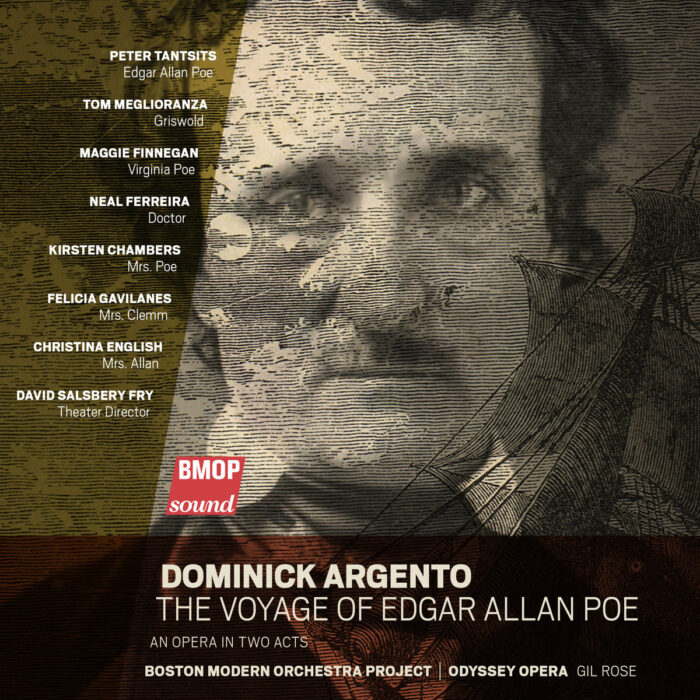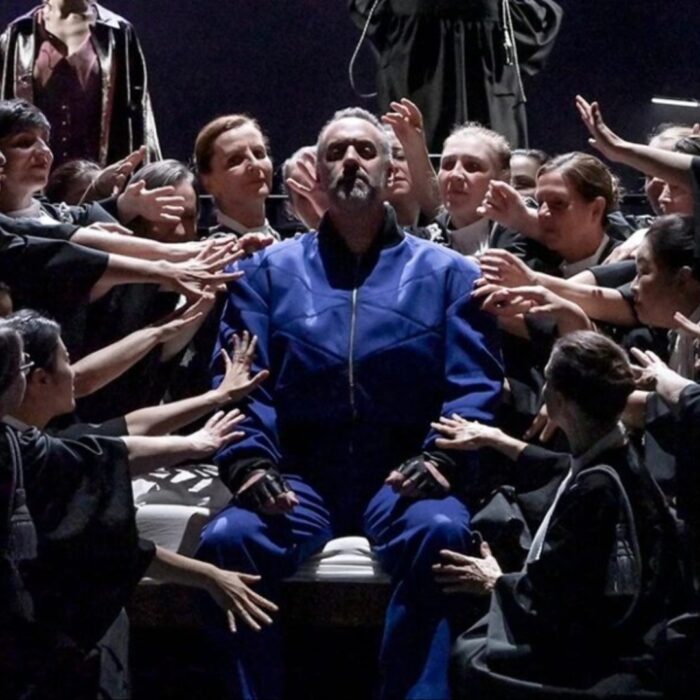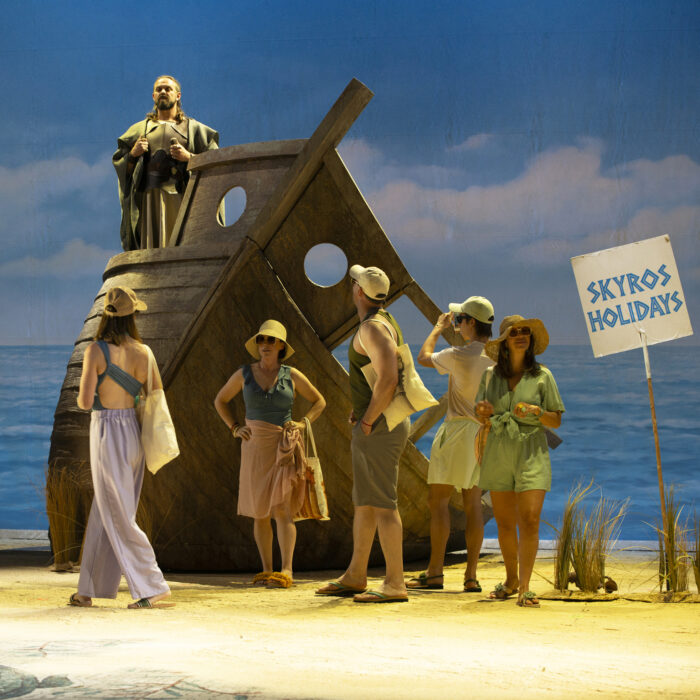
Criticism on Fridays: Letters to Russia
Despite Failed Petition, Russian Musicians May Be Fighting for Bigger Changes
By Polina Lyapustina(Photo: Azat Satlykov)
Every Friday, Polina Lyapustina delivers a short essay on some of the most sensitive topics in the industry with the intent of establishing a dialogue about the opera world and its future.
On February 9, violinist Misha Nodelman recorded and published the Musicians’ Open Letter on the Eve of the Civil War, addressed to the Russian Government. In a video message, created with a help of opposition channel Dozhd (TV Rain), 15 musicians, six of whom are no longer Russian residents, demanded an end to violence, the release of political prisoners, and for the government to give democracy a chance. I would be happy to declare that fighting for the fundamentals of democracy was the main thing the local public took away from this message from the Russian musical intelligentsia. But in Russia, many people took a different course.
The letter caused some buzz, but in fact, made no difference. The Government didn’t even need to fight this statement — other Russian citizens rushed to silence Russian musicians. In talking about the civil war, Nodelman was right.
In the ensuing 10 days, the note was signed by another 450 musicians. In a country with a population of 144.4 million people! Let me repeat that — 450 people signed a letter claiming the very basic needs of modern society in all of Russia. Do you remember when 60,000 musicians sighed a petition in the UK in just SEVEN hours?
Now, one could simply shrug this off and say, “The Russian people have chosen this path themselves.” But I’m not gonna do that.
It was no coincidence that I emphasized that the six signatories no longer live in Russia. I do think this simple fact plays a leading role in the bleak fate of this video because I’m an emigrant from Russia myself and for years, was not allowed to share my opinion on life in Russia. What can we emigrants know? Why do we care? That’s quite a typical attitude for the Russian majority.
Another common opinion is that as emigrants, wherever we may be, we are free to speak whatever we want, and therefore, we are not responsible for our words. But in this case, that bitter point, fortunately, protected local Russian musicians. The indignation with no limits fell on the heads of musicians who signed the letter from abroad. In the post that was intended to collect signatures, the number of intolerant and simply aggressive comments exceeded the number of signatures.
But if truth be told, Misha Nodelman was enough.
One of the leading Russian TV performers — I cannot and will not call him a journalist — Vladimir Soloviev condescended to criticize him personally. For his look. For his name. For his nationality. Welcome to the Russia of the 21st century, where hate speech about “wrong Jews” living in “wrong countries” interfering in the affairs of Russia, can be broadcast on major national channels.
I would like to remind you that Stalin’s Anti-cosmopolitan campaign that took place 70 years ago and deprived thousands of open-minded Jews and Russians of work (and ultimately their lives) in addition to slowing down great cultural and scientific development, started with exactly the same statements. And by the way, that campaign has never been formally condemned by the modern Russian authorities.
And so, all of us who studied history in post-Soviet schools remember that the history of Russia is always repetitive. And that is the answer to all the WHYs you can ask reading this article.
Why don’t Russian musicians write and sign the petitions? Because the only result would be losing a job. Or because they know it won’t change anything.
Why don’t they go on the streets? First of all, I believe many of them do, and they risk suffering even more severe consequences, including endangering their health. Others simply remember the costs.
Why don’t they believe it could work? Would you believe in any community changes when you are disconnected and alone?
And that is the bitter truth — with no unions, without knowing their rights, Russian musicians are mostly just given jobs. And what is given could be easily taken away. For generations, teachers and middle-class musicians do not realize their value and contribution to the preservation and development of great Russian musical culture. They don’t know themselves. How could they then be expected to know each other, and how would they be united with other musicians?
And it is this isolation that ultimately makes them totally harmless.
But what of the Russian superstars performing all around the world? Couldn’t they do something? Don’t they see what’s going on?
Well, for those who might make a difference, the situation was smartly predetermined years ago. Allowed to be international stars, raise educational initiatives, and develop opera art, they pay their price. Every major theater has a strong pro-Putin core in administration and most managers and singers are in the Party (I’m writing it and cannot believe it happens again — today). Yet, this status is another well-known and “normal Russian” practice.
The biggest operatic events (which means the biggest money too, I guess) are always organized directly by governmental bodies. So the loyalty of the Stars is regularly maintained. In the reality of Russia, their big voices could change so much, yet they have too much to lose. And if they keep silent, no one reproaches them for inaction. So far, not one of them has said anything, because in their minds, “nothing” happens in their country.
When Misha Nodelman was asked whether did he believed that the petition would work out, he immediately replied “NO.” What was the point then, you might ask? Here’s his response.
“We do this, first of all, for ourselves. We are looking for each other’s elbow — the neighbor’s elbow, we are the guild, we are the musicians, we cannot be silent.”
And this is a beautiful, clear, and inspiring declaration. And a dangerous one. The one I would be happy for Russian musicians in Russia would hear and accept. Once, we know that we are many, we can revive the institution of cultural dissidence. An intelligent and powerful culture, based on enlightenment and respect. But only as soon as the artists see and trust each other.
But for now, such thought could be born only in the head of an artist who left Russia. Here in Europe we know, we are stronger when we are together. In Russia, sharing your thoughts with a friend is a threat to your job, freedom, and safety. From history, actively re-written by the government, we learned distrust of friends and especially colleagues.
So for the artists who live and fight in Russia, the only common pattern is remembering what is forbidden — following the common rules to keep what is given (not much, to be honest). And how to overcome restraints everyone decides for themselves. In Russia, when you are fighting, you still fight alone, against something, but seldom for yourself. That is how it was for centuries in Russian society and Russian music culture. Disconnected, underestimated, solitary with every musician powerless — both socially and artistically.
But how long will it last? What if Misha Nodelman’s idea starts working?


